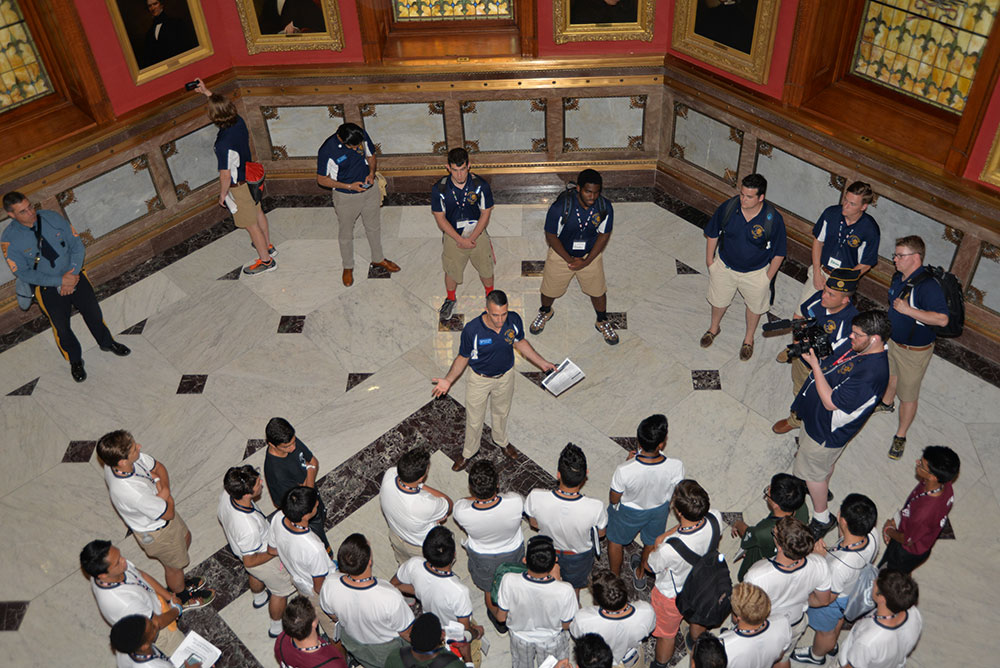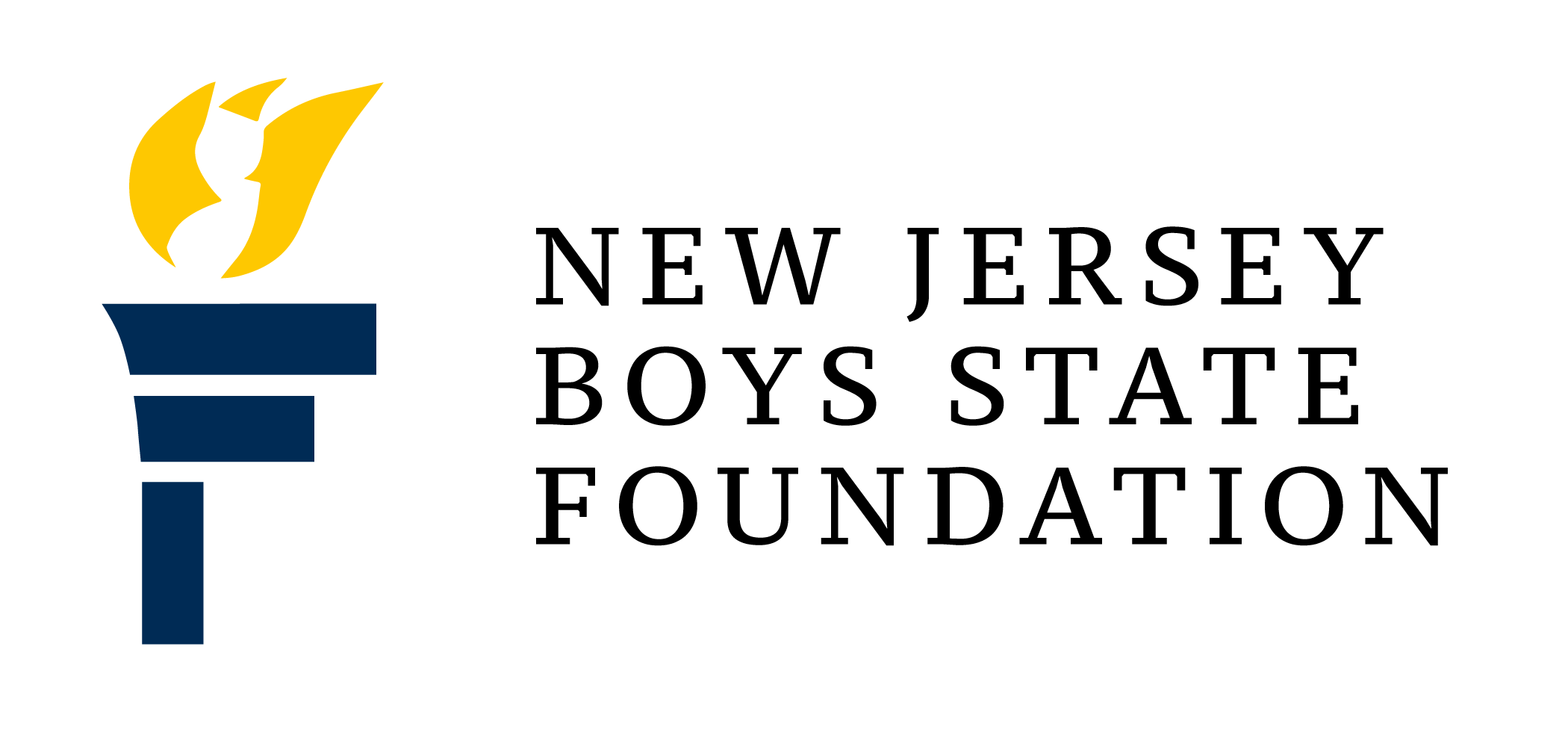News Archive

In 1792, George Washington wanted to step down as president. He had spent much of his 60 years serving America in some capacity, and he was ready to retire. James Madison was asked to draft a Farewell Address. But Washington was convinced otherwise by both Thomas Jefferson and Alexander Hamilton to stay in office. (This was pretty much the only thing Jefferson and Hamilton agreed on, ever.) Both Jefferson and Hamilton feared that the country would fracture without his leadership. Washington had largely been able to hold things together despite partisan bickering and other fledgling nation issues. Four years later, in 1796, Washington didn't acquiesce and instead stepped away for good.
it was a momentous occasion. A young nation was not just transitioning its power without having things go awry but also transitioning away from THE person who had defined and led them for decades. Somehow, it worked. Washington's two-term pattern was respected for years until being codified over 150 years later.
Was Washington right to step away when he did? Perhaps. He was 64, and died three years later. If anyone had earned the right to say when he wanted to retire, it was the man who had given forty years to his country. Even if Washington's departure left things unsettled, what more could he reasonably have done? The nation needed to find its footing without him in charge.
As Washington showed, stepping away from something is never easy. There's always more work to do. Leaving breaks bonds that have been formed over time. No matter how hard you try to prepare everyone, there may be no good exit. Washington wasn't able to resolve the Jefferson/Hamilton dispute, which continued for years after he retired.
Sometimes an end leaves the door open for future return. An adult who moves away from his or her parents still has an opportunity to return. Someone who leaves a school can go to another school or drop by the old one. A trainee may leave an instructor after completing their training and move on to another teacher. In many situations, it's not too hard to keep the door open.
Boys State isn't quite like that, though. It's not that we discourage people from coming back—we invite dozens of people to come back each year—but when you come back, it's different. Once your experience as a delegate finishes, it's done. You don't come back as a delegate again, and your relationship to the program changes.
As we said in the Prologue, we have one week to pass on what we want to. "And then the young men that we've taught will go back to their homes and lives, taking their lessons with them, rarely to return. Will it stick? Will they flourish in their civic lives?"
Part of being an adult is to balance responsibility with humility. Humility is perhaps best defined as a right understanding of one's place in the universe. Put another way, humility means knowing our limits. We only have so much time, energy, and resources to put into things. Trying to push beyond them sooner or later becomes foolish. This extends to our place in society too. We can't compel people to change, no matter how hard we work. We can try to present what we believe is a better way, but the effectiveness of that is out of our control.
When the ALJBS graduation ends and the delegates go home, any semblance of control we had is gone. We can't force this program to mean anything more to people than it does. Some people will take what they've learned here and go on to new heights. Senator Menendez, who spoke at graduation, is a great example of this, as are the other ALJBS alumni.
Sometimes, the impact of ALJBS is just the glimpses we see. Seeing young men come together and discuss a difficult problem will never grow old. Seeing them become friends with a diverse set of people is great too. Even hearing them gripe about bad candidates (as often happens later in the week) is oddly encouraging, because it shows that they're synthesizing what they hear from us and evaluating the candidates running for office. These glimpses remind us that we are doing something right, that our efforts do make a difference.
For me, the glimpse that will most define this year is George Afoakwah's reaction to being elected governor:
I've seen enthusiastic governors, but I've never seen someone just incredulous and overjoyed to have won. Watch George's phone call with his dad after winning and try not to smile. This is someone who was not in the country two years ago. This past week, he was elected to the highest office at ALJBS. And, if you saw his graduation speech, you know that George is serious about trying to do a good, thorough job. The lesson for us all: try your hardest and apply what you've learned whenever your time comes.
That time has come for all our statesmen. Graduation is our way of saying "we think you're ready." Go home to your towns, your schools, your posts. Get involved. Take the new understanding of government that you have and teach others. Show them what doing the work of citizenship (and possibly governance) looks like. Be another Brandon Pugh and be elected to your school board at 24. Be another Vinny Solemeno and start your town's Democratic Party while a teenager. You have the tools to do this. You have your skills, your voice, your vote, your new understanding of politics, and your experience working with others on these issues. Go make us proud.
Next year, your time will come again in the form of high school graduation. Just as you'll take the lessons of your high school and build on them through college or professional schooling, we hope you take the lessons of Boys State and build on them through citizenship.
Teddy Roosevelt said that a vote is like a rifle: its usefulness depends on the character of the user. This is why we try to pass on what we can. For this form of government to continue, it needs good citizens. It needs the lessons from ALJBS. Even if they just stick as glimpses, they've still taken hold. If that happens, we, the staff, will be very, very happy people.
Our time with this year's group is done. We're always here if you want to drop by. But there's more groups to come, including one next year. If you want to help us pass on to them what we've learned—and what you've learned this week—then please consider coming back on staff as a junior counselor. We'd love to have you. Or consider making a donation to help the program continue.
Let's do this again, gentlemen, with others.


